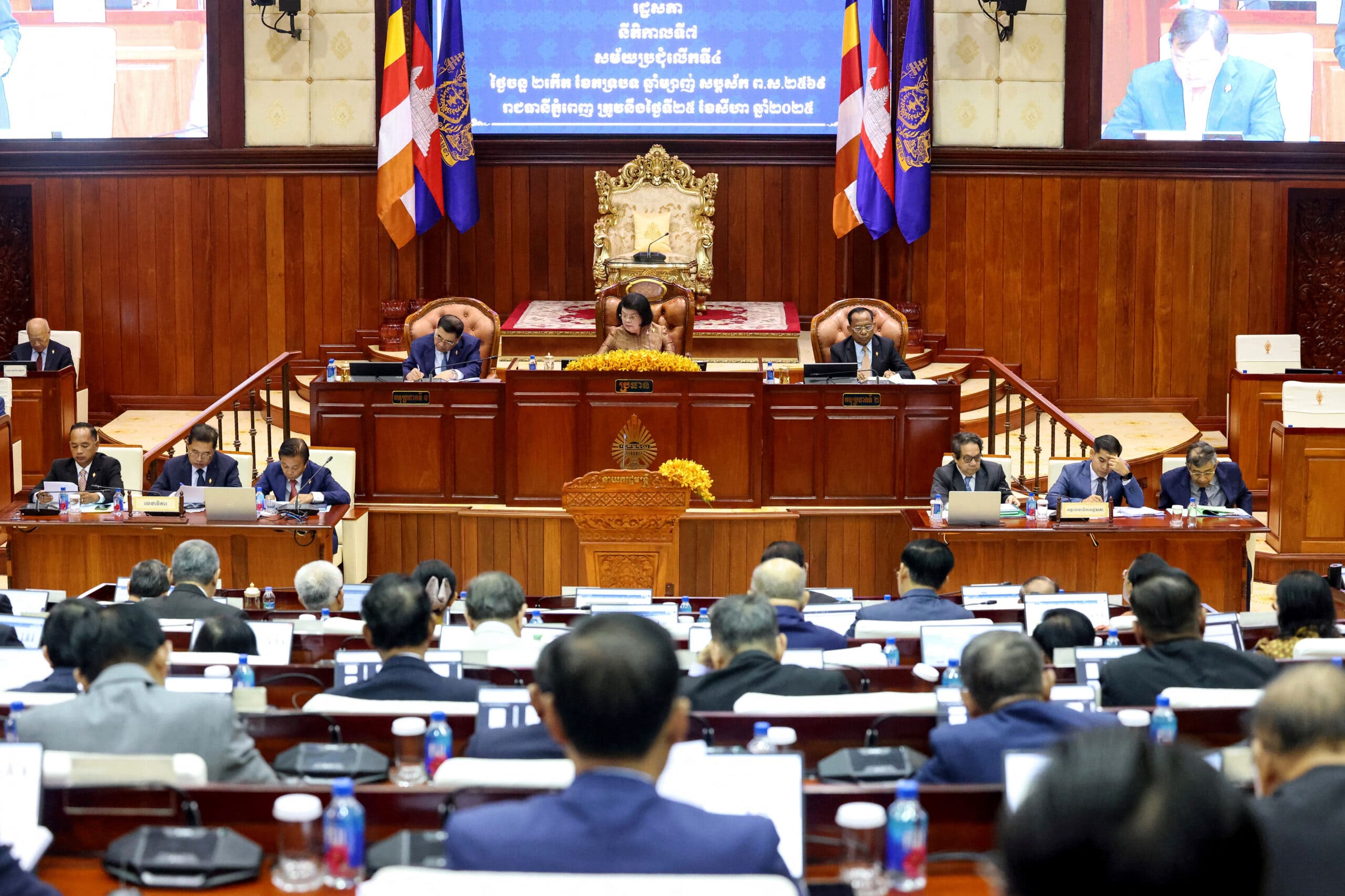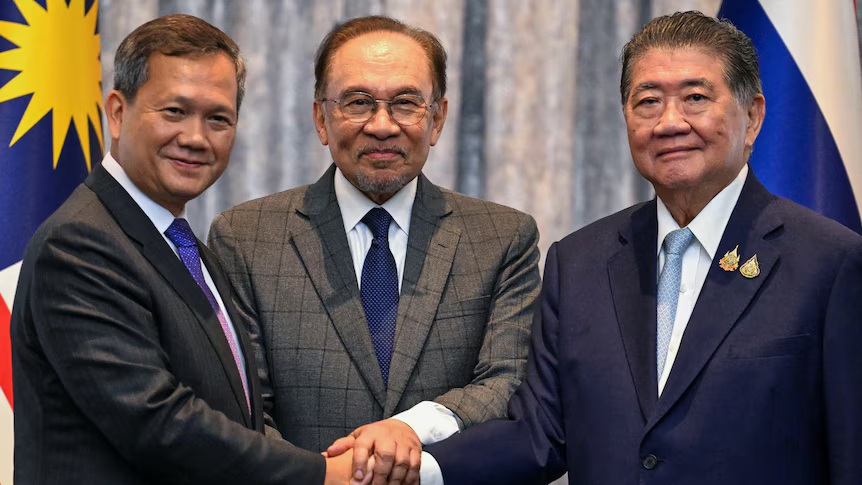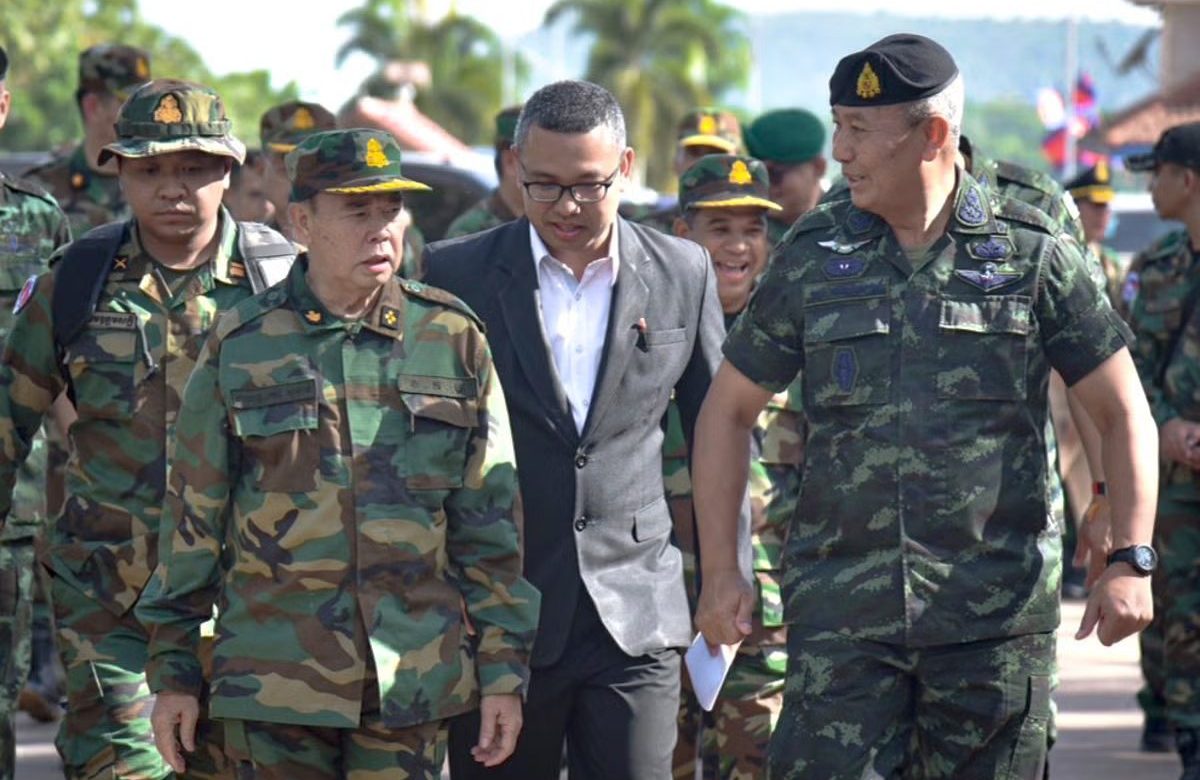
Cambodian Parliament Passes Citizenship Revocation Law
- World News
- August 26, 2025
- No Comment
Report by “Safarti Tarjuman” International News Desk
Phnom Penh — Cambodian lawmakers have approved a sweeping Nationality Law amendment that grants the government authority to revoke citizenship from individuals accused of conspiring with foreign powers against national interests — a move critics warn could be used to silence dissent and suppress opposition voices.
The legislation, passed unanimously by all 120 National Assembly members present, was introduced under the leadership of Prime Minister Hun Manet and the ruling Cambodian People’s Party (CPP). Before becoming law, it requires endorsement by the Senate and King Norodom Sihamoni, approvals that are widely seen as procedural.
Civil society groups and opposition figures warn the law could become a powerful tool to stifle dissent. Ahead of the vote, more than 50 Cambodian NGOs issued a joint statement expressing concern over the amendment’s “vague language” and potential misuse.
“Citizenship is the foundation of every right, and stripping it away undermines freedom of speech,” the statement read.
Analysts suggest the law could disproportionately target opposition politicians and activists with dual citizenship, who have long faced pressure from the ruling party.
The amendment was passed against the backdrop of heightened nationalism, fueled by a recent border conflict with Thailand that ended after a fragile ceasefire.
Defending the legislation, Interior Minister Sar Sokha said those who act against Cambodia’s sovereignty “should no longer be recognized as citizens.”
Hun Manet added that the law only threatens individuals working against the country’s interests:
“Patriots have nothing to fear. But those who conspire with foreign powers to harm Cambodia should worry, because no patriot betrays their nation.”
Cambodia has a history of using legal measures to neutralize opposition. The Cambodia National Rescue Party (CNRP), once the main opposition force, was dissolved by court order in 2017 after accusations of plotting with foreign powers. Its former leader, Kem Sokha, was later convicted of treason over alleged ties with the United States.
Observers note that prominent critics of the ruling party — including opposition politicians — often hold dual nationality, making them particularly vulnerable under the new law.
While Hun Manet has pointed out that around 150 countries, including the United States, allow citizenship revocation, rights groups argue that Cambodia’s amendment lacks the narrowly defined safeguards common in democratic systems.
Analysts warn that the measure could further erode Cambodia’s democratic space, tightening the CPP’s grip on power and discouraging political opposition.
Thank you for reading! For comprehensive news coverage and exclusive stories, visit SafartiTarjuman.com







